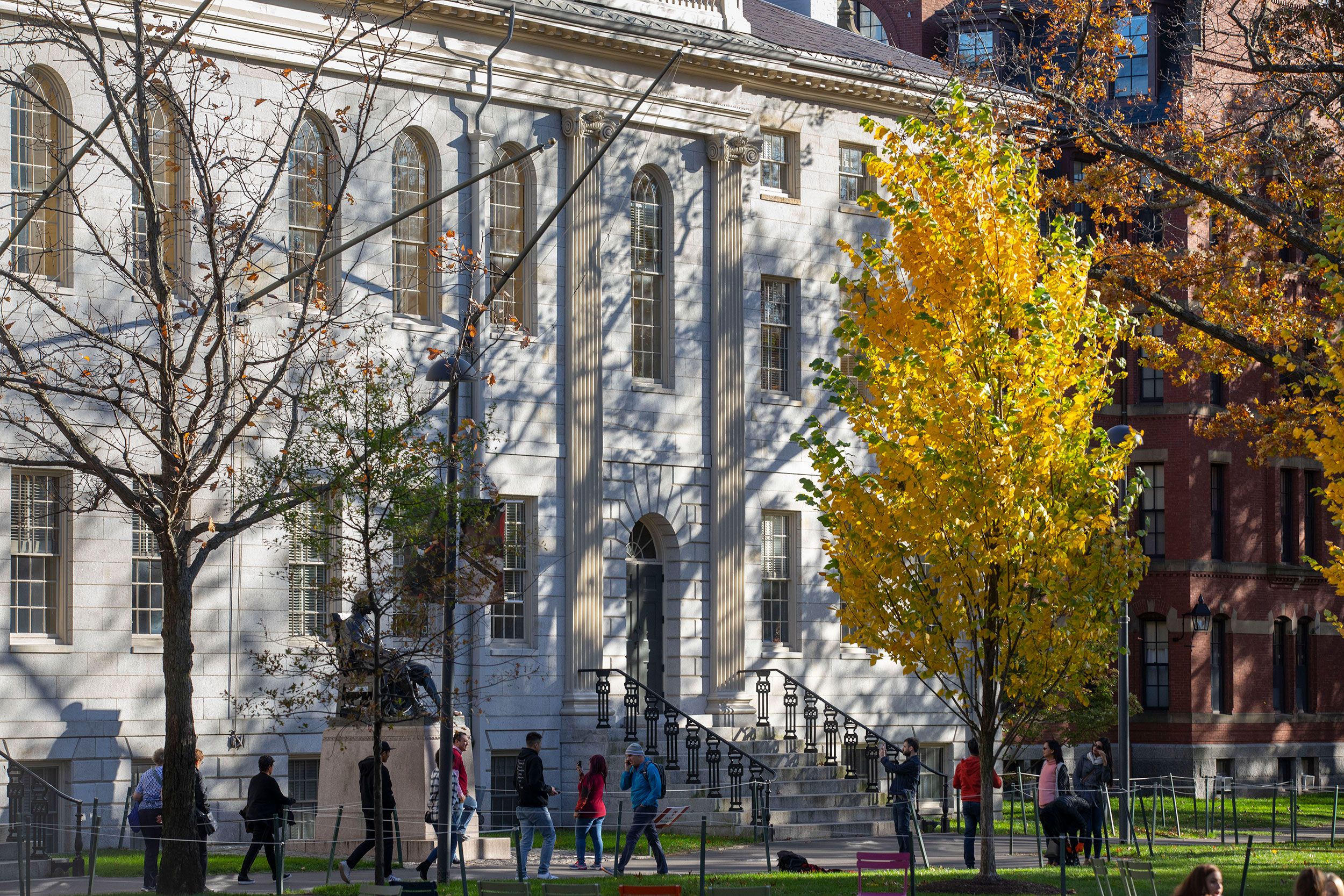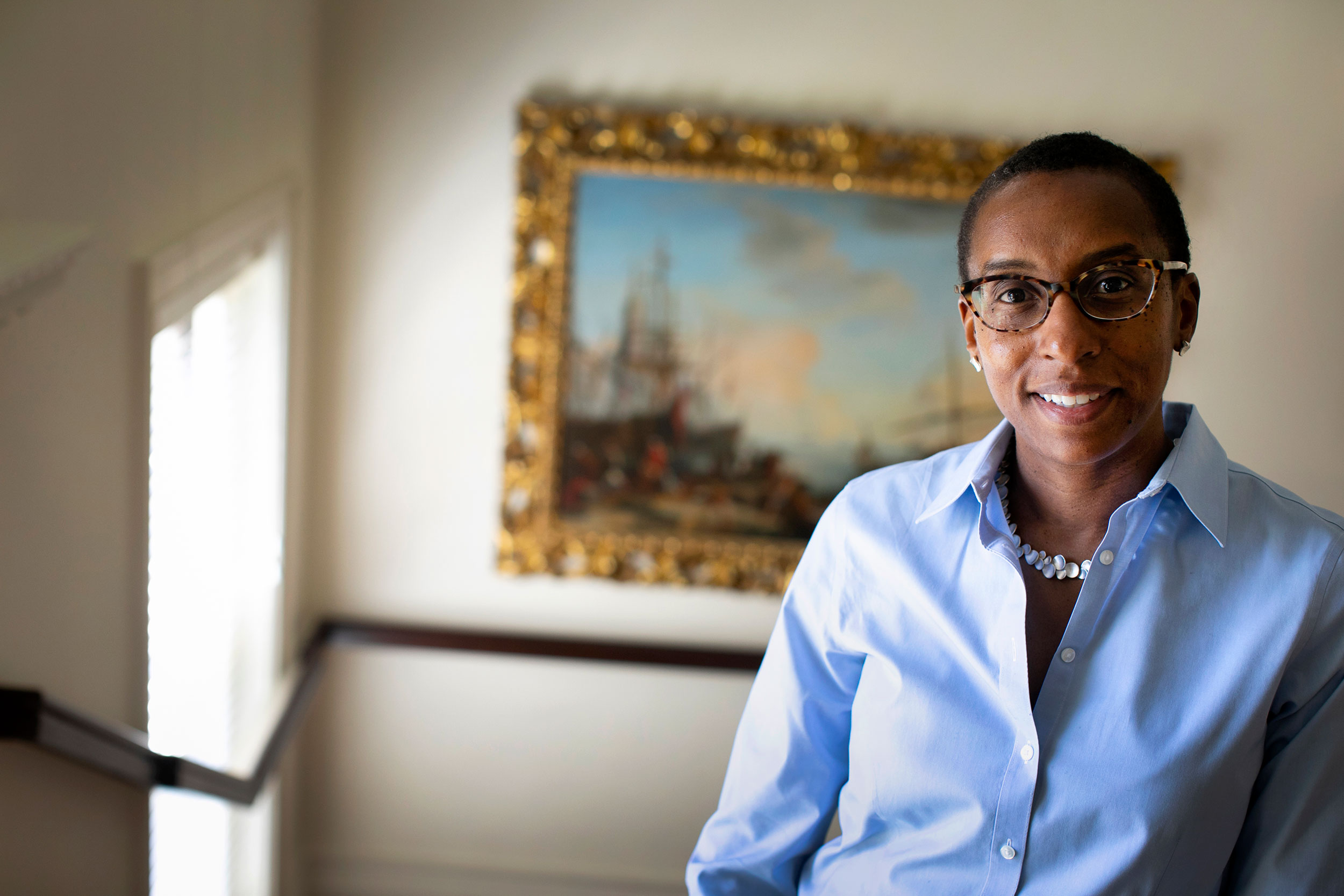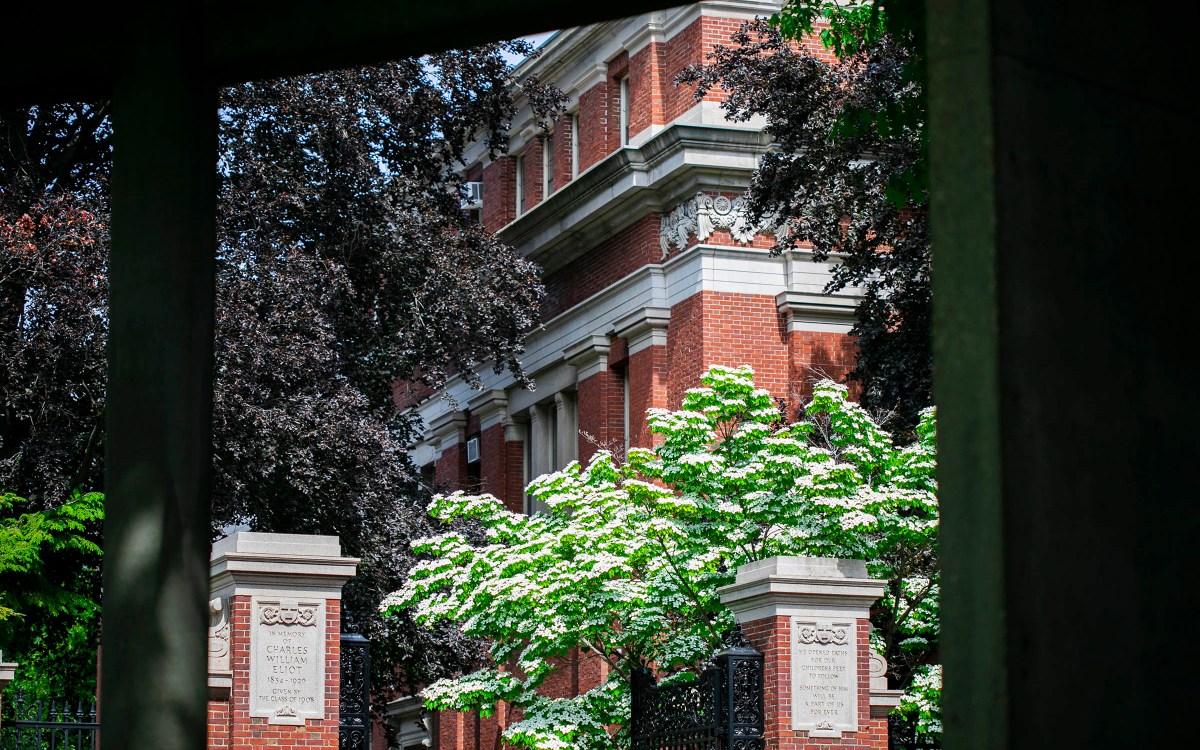
The success of the pandemic planning process motivated Dean Claudine Gay to create the FAS Study Group.
Kris Snibbe/Harvard file photo
Becoming founders of a future FAS
Dean launches 3-year strategic planning process to open door to greater flexibility, innovation in teaching, research
Claudine Gay, Edgerley Family Dean of the Faculty of Arts and Sciences, has launched a broad, three-year strategic planning process to define the structures and resources needed to support long-term excellence in teaching and research within and across the many fields and disciplines represented in the FAS. The process puts a particular focus on a forward-looking vision for excellence in graduate education, faculty support and development, and organization of academic communities.
“This is an opportunity for the current generation of faculty to be founders for a future FAS. There is an appetite for these conversations and an imperative for change,” said Gay, who put the process into motion after seeing success in the pandemic-born Scenario Planning Process that engaged working groups of more than 100 faculty and administrators to work collaboratively to address the moment’s unique challenges and envision solutions.
“There was so much we didn’t know at that time, but one thing was certain — everything about our teaching and research was about to change, radically. And we had a range of fundamental questions to answer about how to pursue our mission in these new and challenging circumstances.”
The success of the pandemic planning process motivated Gay to create the FAS Study Group, which began its work in November 2020. Led by Jeremy Stein, Moise Y. Safra Professor of Economics, and Karen Thornber, Harry Tuchman Levin Professor in Literature and professor of East Asian languages and civilizations, who served as co-chairs, the group included faculty from across the FAS academic divisions and the Harvard John A. Paulson School of Engineering and Applied Sciences. Eight subcommittees analyzed restricted funds, ladder faculty, departments and administrative structures, centers and administrative structures, graduate education, space on campus, and operations at the Division of Continuing Education.
“This is an opportunity for the current generation of faculty to be founders for a future FAS. There is an appetite for these conversations and an imperative for change,” said Claudine Gay, Edgerley Family Dean of the Faculty of Arts and Sciences.
Stephanie Mitchell/Harvard file photo

The study group delivered a report to Gay this semester recommending a vision for how to position the FAS for broad-based academic excellence, innovation, and sustainability. “I think the shared premise of all of us working on the FSG was a desire to enable the FAS to be as nimble and innovative as possible in pursuing our teaching and research missions — by attracting and retaining more early career scholars and diverse faculty, by exploring the most exciting areas of new inquiry independent of how they fit into existing disciplinary categories, and by creating the best possible learning environment for our students,” said Stein. “We also have to have a better understanding of our financial resources and constraints, and work to allocate these resources as flexibly and strategically as possible.”
The work of the faculty group built upon ongoing examinations of divisional processes and operations in Division of Arts & Humanities and SEAS, as well as echoed work underway to recenter the graduate student experience in the Graduate School of Arts and Sciences. Last year, Robin Kelsey, dean of arts and humanities and Shirley Carter Burden Professor of Photography, started having conversations with faculty about the possibility of change within the division and embracing a 21st-century model of teaching and learning that supports interdisciplinary and new fields and evolving student needs.
“We need intentionality when it comes to the recruitment and training of graduate students and greater focus on their well-being.”
Emma Dench, dean of GSAS
“The findings of the FSG are very much in line with the thinking we have been doing in Arts and Humanities,” said Kelsey. “My motivation was not financial efficiency, however important that may be. I was interested in whether we could do a better job supporting emerging fields, engaging students and young scholars, and preparing the arts and humanities to flourish in the middle decades of the 21st century. Those conversations were incredibly compelling and convinced me that this was something the entire division needed to work on.”
Similarly in GSAS, Dean Emma Dench has spearheaded recent student-centered initiatives, including The Advising Project, designed to improve mentoring for master’s and doctoral students, and a series of mental health surveys conducted in partnership with Harvard University Health Services. During the next two years, Dench plans to engage faculty and staff communities to develop a concomitant approach to admissions and to articulate core principles on how GSAS trains its students.
“We need intentionality when it comes to the recruitment and training of graduate students and greater focus on their well-being. This is an exciting opportunity to effect change for our current and future students,” said Dench, McLean Professor of Ancient and Modern History and of the Classics. “We really need to take a step back and ask ourselves: ‘What does the Ph.D. mean in the 21st century?’ and ‘How have the kinds of intellectual leadership roles our alumni assume after graduation changed over time?’”
In the immediate term, Gay will take recommendations from the report to adopt a new model for economic budgeting; appoint an expert to assist departments, centers, divisions, and the FAS as a whole with issues related to restricted funds; and develop a pilot program for more transparent and uniform cost and management of campus spaces. The strategic planning process, which is envisioned to take place over the course of the next three years and will engage all faculty, is launching in parallel path with a focus on better understanding local experience, priorities, and context around graduate education, faculty support and development, and academic communities.
“We are asking big questions: What is the vision for our School? How do we build an FAS that empowers us as teachers and scholars, and that meets the needs of this generation and the next? — because we want to dream big,” said Gay. “I’m ready to dive in, and I hope my colleagues are, too. Their ideas, experience, frustrations, and aspirations will be valuable and necessary for all of this to be successful.”




